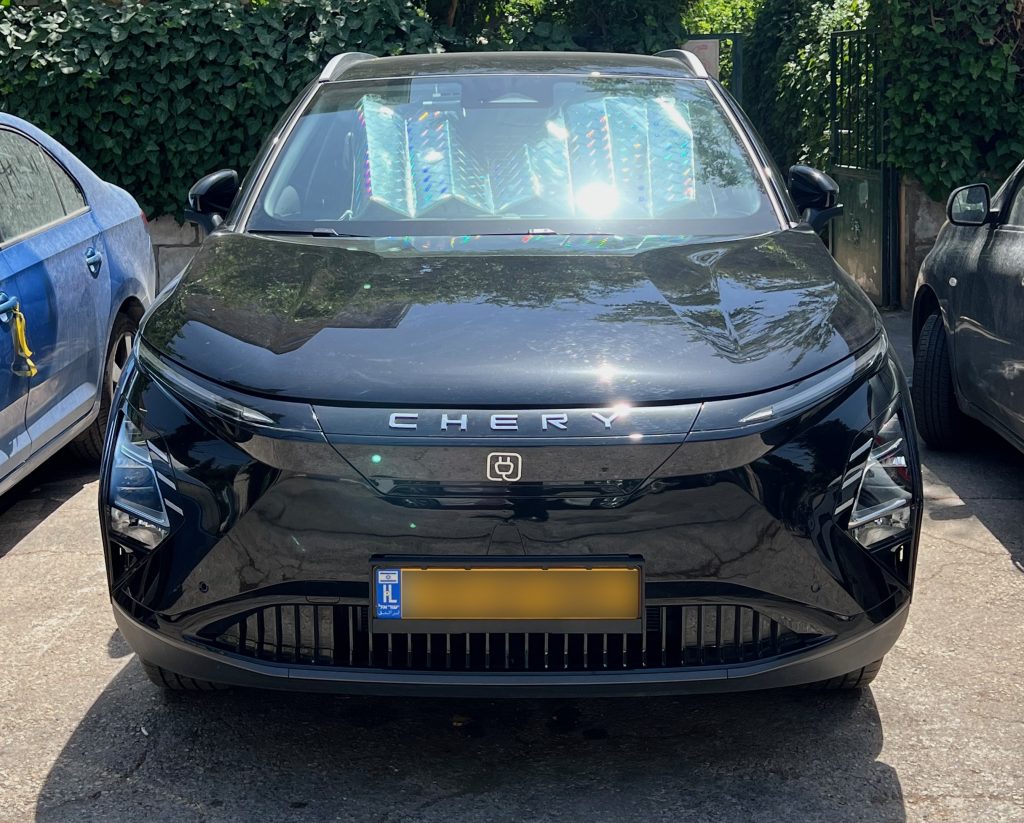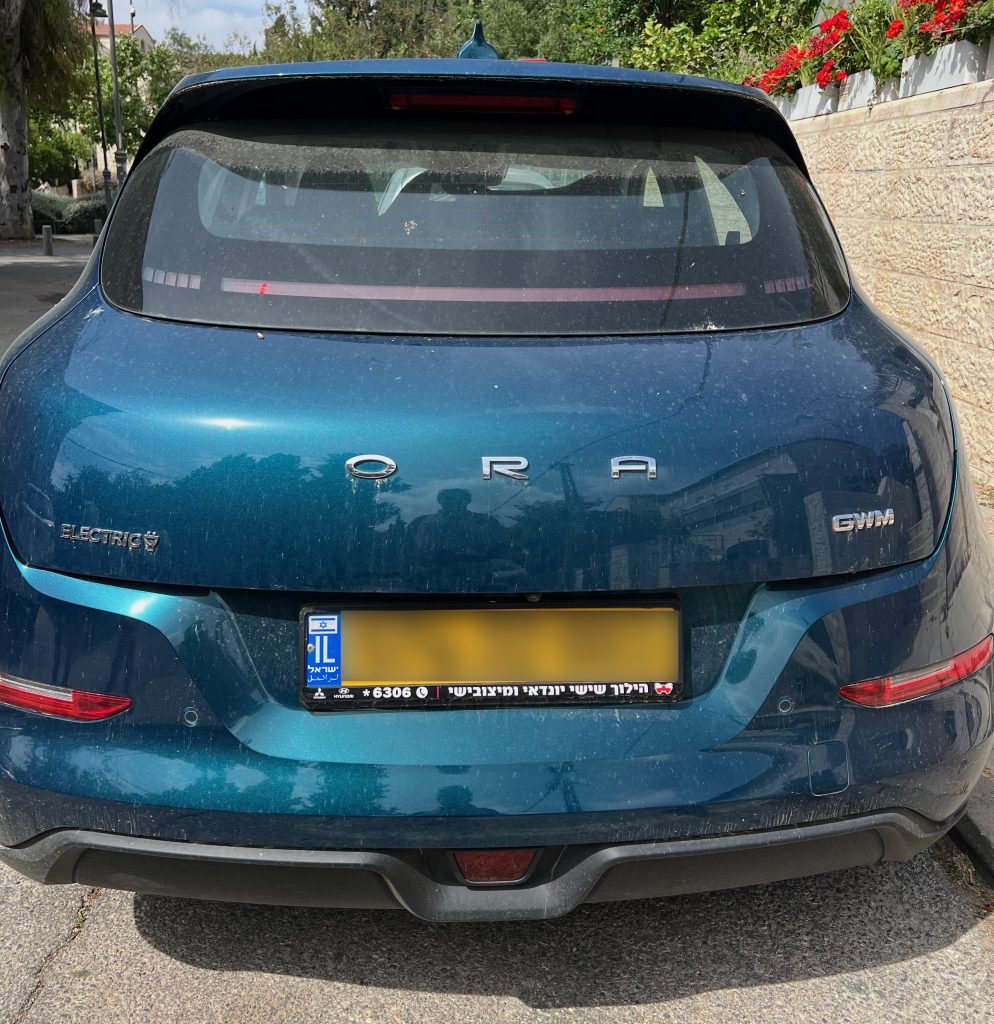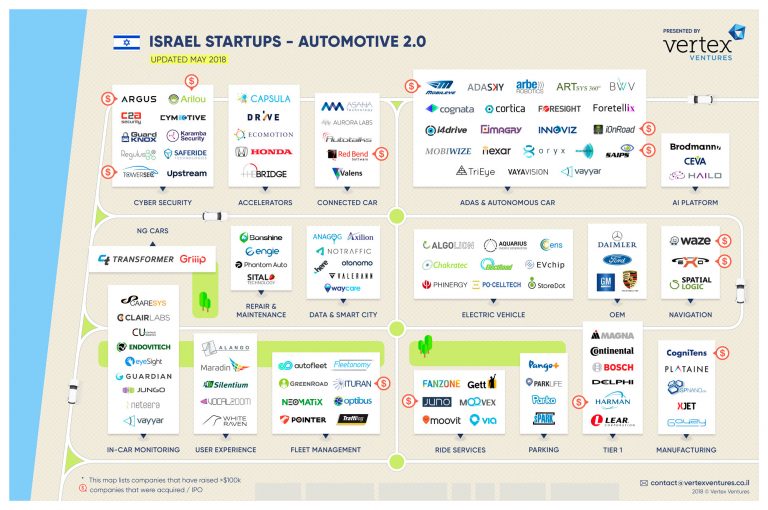I lived in Israel for two decades, and in all that time the cars available were fairly consistent. Compared to the US, there were still many Japanese and Korean cars, but more European and fewer American cars. There were few luxury and sports cars in Israel, except for a cluster of nice cars in Herzaliya and Tel Aviv. Japanese and Korean cars were most common, with Mazda, Toyota, Honda, Mitsubishi, Suzuki, and Nissan very common from Japan, and Kia, Hyundai and KGM (formerly SsangYong – not sold in the US) from South Korea. European cars included VW, Skoda, Fiat, SEAT, Peugeot, Citroen, Dacia, Audi, and Mercedes. US brands existed, with Chevrolet and Ford the most common, although many of these came from their European or Asian factories (this was largely to do with the fact that Israel follows European standards on many things, including how the headlights are pointed on cars – US points them straight ahead and Europe points them slightly to the sides). Before I left in 2022, Tesla had just made inroads into Israel, although I’m not sure from which country those cars were imported (since Tesla has factories in Germany and China as well as in the US).
When I visited Israel earlier this year, one of the most amazing changes I noticed was how many Chinese cars were on the streets. When I left, I don’t think I had ever seen one. Under three years later, and it seemed like there had been an invasion of Chinese cars. Some were brands I knew of, like BYD and Chery, while most were brands I wasn’t very familiar with before that visit. Some of the other Chinese brands I came across were Geely (in particular the Geometry C EV), Aiways, XPENG, Jac, Skywell, GWM Ora, Leapmotor, and Foton (which makes EV pickup trucks). Two companies were joint-ventures between Chinese and Swedish companies – Lynk & Co and Polestar. Most, but not all, of the cars are electric. Many buses in Israel are made by Golden Dragon, which sells to all the major bus companies in Israel such as Egged, Dan, Superbus and Kavim, although that started much earlier. I’m sure there are more brands that I just happened to not see yet, but that’s a dozen car brands that have made huge inroads into Israel in the past few years.
Israel has no local automotive brands, although it does have some secondary businesses in the automotive field. Most famous perhaps is Mobileye (once owned by Intel but now a public company) that produces Advanced Driver-Assistance Systems (ADAS) and Autonomous Driving (self-driving) technology used by many car companies. One of the most interesting companies, even though it failed, was Project Better Place, which designed and implemented a charging system for electric cars that allowed batteries to be swapped, so a car could go from empty to full charge in just a few minutes. They launched in Israel in 2008, and by 2012 had cars from Renault with swappable batteries, but went bankrupt by 2013. Perhaps an idea ahead of its time, although no one has again attempted the swappable battery idea.
Israel imposes a steep tax on buying cars, effectively 100%, and more for luxury cars. This explains to a large extent why smaller less-expensive cars are the most popular, and luxury cars are uncommon. It also helps explain the popularity of less-expensive Chinese car brands. The best-selling car in Israel in both 2023 and 2024 was the BYD Atto 3, although Toyota was the number one car brand overall in 2024. Other Chinese car brands are on the rise, including XPENG, which while it did not overtake BYD, saw its G6 model reach the second or third spot in the month of December. Overall in 2024, Chinese brands sold 18.5% of all cars in Israel. A mind-boggling statistic is that, in early 2023, Israel was receiving more Chinese EVs than all of the European Union. This was before the EU added an additional tariff on Chinese EVs in 2024. Israel is not a large country, so this statistic is even more incredible.
People were surprised in 2024 when President Joe Biden imposed a 100% tariff on Chinese electric cars sold in the US. Israel and the US have very different car markets, but the speed of the Chinese incursion into the market in Israel suggests some of the potential damage China could do to the domestic car market in the US, and goes a long way to explaining Biden’s imposition of special tariffs. One study last year estimated that the Chinese government has spent over $230B on subsidies for the EV market. While both Europe and the US cited the subsidies provided by the Chinese government as a reason for imposing tariffs (to counteract the price difference made possible by the subsidies), one would think that the potential for the use of Chinese EVs as a method of surveillance for the Chinese government was also a factor. All EVs have Internet connections and cameras. Whether or not the cars are listening to the people in them, simply tracking their locations would generate a huge amount of data for the car companies (and the Chinese government).
Imagine the simple idea of tracking all cars that go to military bases, and then tracking where else they go. Imagine tracking all the people that go to HaKirya (the Israeli military headquarters, similar in concept to the US Pentagon) and then figuring out where all those people live. Probably almost any modern car manufacturer could calculate that data in a matter of minutes, but while most car companies could figure that out, only Chinese car companies are required by law to provide information to their government. The National Intelligence Law in China requires all Chinese companies (and individuals and organizations) to assist national intelligence institutions. So maybe it’s not such a great idea that so many Chinese cars are now on the roads in Israel? Maybe it’s a good thing that Chinese EVs are tariffed out of the market in the US?




